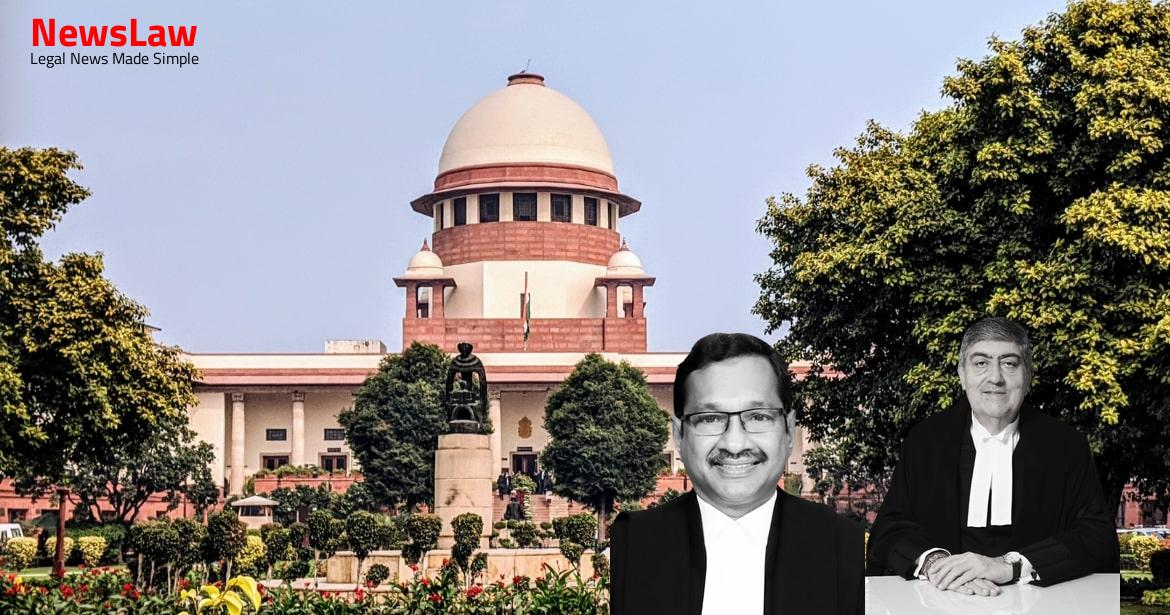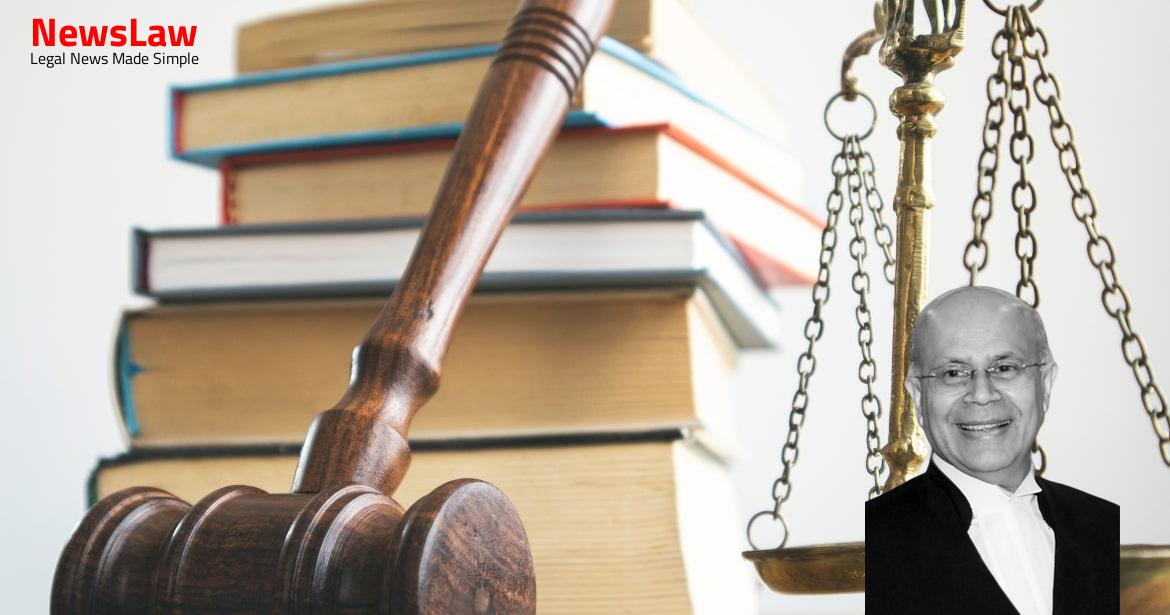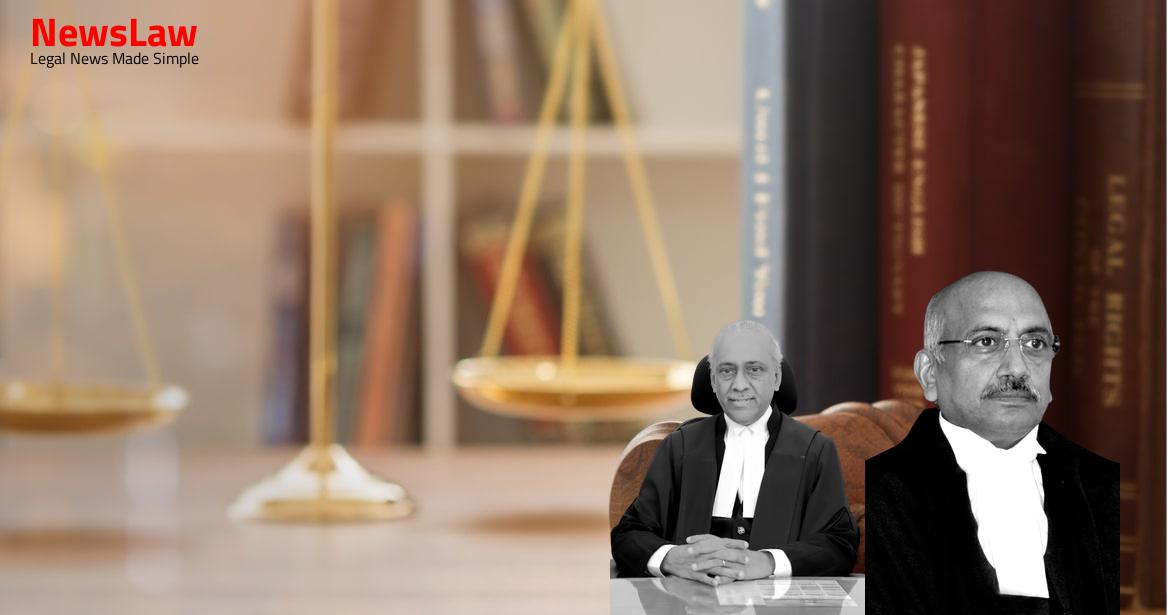In a recent legal case, the court delved into the complexities of interpreting an Airport Operator Agreement, highlighting the nuances of regulatory review and contract interpretation. The court’s analysis focused on respecting the expertise of regulatory bodies, upholding legislative intent, and ensuring a rational basis for conclusions reached. Join us as we explore the legal intricacies of this case and uncover the key principles governing the interpretation of complex multi-clause contracts.
Facts
- Airport Operator Agreement signed on 01.05.2006 for DIAL and MIAL
- Different fee sharing percentages for DIAL and MIAL to pay AAI
- Introduction of Airport Infrastructure Policy in 1997 for modernization and development
- Amendment of AAI Act in 2004 to allow private airports and leasing to private operators
- Introduction of new airport infrastructure policy in 2002
- Bidding process leading to award of operation and management of IGIA and CSIA to GMR and GVK consortiums
- Execution of JV agreements between GMR, GVK Consortiums and AAI for DIAL and MIAL
- AAI holding 26% shareholding in each JV
- Execution of OMDA and SSA agreements between DIAL, MIAL, and AAI
- Efforts towards international level airports development
- Project Cost of CSIA increased from Rs. 6130 crores in July 2006 to Rs. 12,380 crores in 2011.
- TDSAT’s order on 16.07.2020 regarding MIAL’s Project Cost found no new grounds raised and considered the issue settled in DIAL’s case.
- AERA referred to reports of experts, consulted with stakeholders, and ensured transparency in exercising its powers as per Section 13(4) of the Act.
- The TDSAT allowed the exclusions mandated by AERA from DIAL’s project cost amounting to Rs. 354.14 crores.
Also Read: Supreme Court Judgment on Single Till Mechanism for HRAB Calculation: A Comprehensive Analysis
Arguments
- Mr. Datar argued that the definition of ‘T’ under Schedule 1 of the SSA mandates the computation of corporate taxes on earnings pertaining to Aeronautical Services based on accounts prepared by AERA for the TR formula, excluding the Annual Fee, which is considered a cost.
- He emphasized the principle of business efficacy to interpret the agreement effectively and achieve the intended results by prudent businesspeople.
- Reference was made to the Australian Competition and Consumer Commission’s view on fuel throughput levies as an abuse of market power by airports, and the ICAO’s classification of fuel throughput services as aeronautical.
- The argument highlighted the issue of levying Development Fee (DF) to bridge the revenue gap, while Airport Operators contended that certain provisions in the Airport Economic Regulatory Authority Bill suggested inclusion of non-aeronautical services.
- The discussion also delved into the calculation of Hypothetical Regulatory Base (HRAB) and Target Revenue (TR) formulas, with Mr. Buddy Ranganathan arguing against bifurcating prevailing tariff and revenue.
- The TDSAT rejected the contention of rejecting DF based on consistency and logical interpretation grounds.
- Different interpretations of the definition of ‘T’ and ‘Corporate Tax’ in the context of aeronautical services were presented by the petitioners and respondents, leading to a debate on the elements constituting TR under the SSA.
- AERA and FIA supported the order while citing the principle of ‘Reddendo Singula Singulis’ to distribute multiple subjects and objects in a sentence appropriately.
- Issues around CPI-X factor application, Net Present Value calculations, and the impact of excluding the Annual Fee as a cost were raised in the arguments.
- Various hypothetical examples were used to illustrate contrasting interpretations of how ‘pertaining to aeronautical services’ should apply to different elements of the formula.
- Stakeholders would bear the burden of training costs, not the Airport Operators.
- DIAL did not argue that AAI staff costs were unnecessary for airport operations.
- DIAL and MIAL agreed to pay Annual Fee percentages voluntarily.
- AERA’s role as a regulator in determining Project Cost was discussed.
- Choices made by Airport Operators influenced the deduction of the Annual Fee.
- Audit reports pointed to MIAL’s casual approach contributing to project cost escalation.
- No pass-through available for Annual Fee as per the clause.
- A pass-through would occur if Annual Fee was not deducted as a cost.
- Treatment of corporate tax under ‘T’ contrasted with WACC formula.
- Incurred costs must be taken as shown in certified books of accounts.
Analysis
- Judicial review is not concerned with matters of economic policy.
- The court does not substitute its judgment for that of the legislature or its agents as to matters within the province of either.
- When actions of regulatory bodies are questioned, the court does not shun judicial review.
- A multi-clause contract must always be interpreted in a manner that does not violate any part of the contract.
- Regulatory mechanisms in liberalized economies represent democratic interests of setting terms of operation for private economic actors.
- Judicial inquiry is limited to whether findings of fact are reasonably based on evidence and consistent with the laws of the land.
- Judicial function ends when a rational basis is found for the conclusions reached by the concerned authority.
- Courts are not equipped to re-evaluate the factual basis of orders or findings of fact presented, as long as they are supported by evidence.
- The court’s function is not to evaluate the correctness of factual findings on which orders are based.
- Price fixation is not within the province of the courts.
- Courts are not qualified to replace expert judgment of regulatory bodies with their own views.
- Courts examine whether price determinations were made with due regard to statutory considerations and without influence of extraneous matters.
- Regulatory bodies are present in vital industries like insurance, electricity, power, and telecommunications.
- The role of the court in reviewing actions of independent regulatory bodies is delicate and respecting their expertise forms a crucial part of the review process.
- Judicial review is not akin to the function of a chartered accountant or an income tax officer.
- Judicial function is fulfilled upon finding a rational basis for conclusions approved by the administrative body.
- Legislative intent should be honoured when interpreting agreements in the absence of a complete legislative structure.
- When the legislature delegates power to an agent, findings of fact by the agent may be conclusive if they meet the test of reasonableness.
- Invalidating regulatory action without evaluating its social and economic control objectives could harm the public’s general interests.
- The era of liberalization since the 1990s has defined the limits of judicial intervention in appeals from regulatory decisions.
- The Authority has the power to determine the tariff for aeronautical services at major airports
- In determining the tariff, various factors need to be considered such as capital expenditure, service quality, efficiency costs, revenue from other services, and concessions offered by the Central Government
- Different tariff structures can be determined for different airports
- The Authority also determines the development fees and passenger service fees at major airports
- Monitoring performance standards related to service quality and reliability is also part of the Authority’s functions
- The Authority can call for necessary information to determine the tariff
- The Authority reviews and may amend the tariff every five years
- Transparency is essential in exercising powers, including consultations with stakeholders, allowing submissions, and documenting decisions
- Legislative intent requires considerations of concessions offered by the Central Government in tariff determination
- All appeals are dismissed except for the issue of corporate tax on aeronautical services.
- The Annual Fee paid by Airport Operators should not be deducted from expenses related to aeronautical services.
- The contention on this issue is rejected.
- The matter has been thoroughly considered by AERA and TDSAT, making it unnecessary for the Court to impose a new view.
- Despite detailed analysis, the Court rejects all aspects of the appeals and cross-appeals except for one terminology-related issue.
Also Read: Selection and Appointment of Judicial Officers in Himachal Pradesh
Decision
- Both sides presented arguments before the court.
- No costs are being imposed in the matter.
- The impugned order is modified to a certain extent.
Case Title: DELHI INTERNATIONAL AIRPORT LTD Vs. M/S AIRPORT ECONOMIC REGULATORY AUTHORITY OF INDIA (2022 INSC 682)
Case Number: C.A. No.-008378 / 2018



